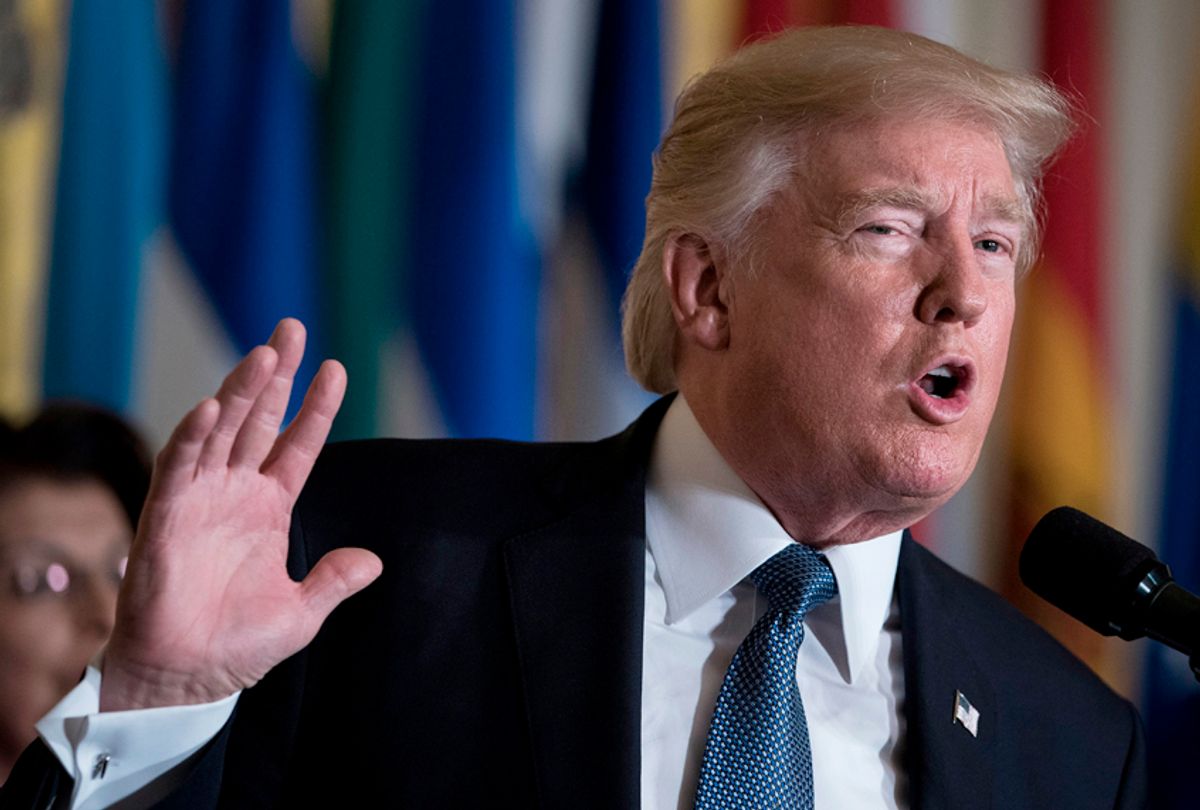President Donald Trump once again used his Twitter account to undermine his opponents and push his own policy agenda, and once again he got things wrong and was deliberately misleading in the process.
On Monday morning, Trump bashed the Democrats for pushing for universal health care, by pointing to the "thousands of people" that "are marching in the U.K.
But the protests weren't because the "system is going broke and not working." They were upset that their health care system wasn't funded well enough — by the conservative government.
The thousands that did march for the National Health Service (NHS) over the weekend demanded that their nation's health care system receive proper funding. Signs at the rally in London read, "more staff, more beds, more funds" and "Saving lives costs money, Saving money costs lives," The Guardian reported. Others shared stories about how they have lost close loved ones because of the system's shortcomings.
The Guardian elaborated:
Nicky Romero sobbed as she told of the death of her daughter, Becky. A coroner found Becky’s suicide was linked to NHS failings after the 15-year-old was discharged from a psychiatric ward, despite self-harming on the same day and her parents’ pleas that she be kept in hospital.
The schoolgirl died in July 2017. “What kind of future will our children have if they can’t get the help they need?” her mother asked. “If the NHS was properly funded my daughter might still be alive.”
In early 2017, the NHS became increasingly unpopular. More people expressed unhappiness than satisfaction for the first time, while 70 percent said they believed the NHS was headed in the wrong direction. The system is funded primarily from general taxation, as well as National Insurance contributions.
The King's Fund, an independent think tank in England, elaborated:
The level of NHS funding in a given year is set by central government through the Spending Review process. This process estimates how much income the NHS will receive from sources such as user charges, National Insurance and general taxation. If National Insurance or patient charges raise less funding for the NHS than originally estimated, funds from general taxation are used to ensure the NHS receives the level of funding it was originally allocated.
Despite shortcomings of the NHS, it's still wildly more successful, and cost efficient, than the system in the U.S. In fact, The Commonwealth Fund, a nonprofit organization that says its mission is to promote higher quality health care systems, ranked the NHS as the top system in the world in 2017. The U.S. was ranked last.
"The United States spends far more on health care than other high-income countries, with spending levels that rose continuously over the past three decades," the study said. "Yet the U.S. population has poorer health than other countries."
None of this, however, is to overlook the NHS's funding failures over the years. It's also important to point out that Trump's hatred of the public sector cost taxpayers more money in the end and won't save them, despite his upcoming plans for infrastructure which diminishes federal involvement in public projects. It's a problem Britain has also dealt with.
The New York Times elaborated:
A report by the government’s National Audit Office shows that taxpayers are expected to pay nearly $285 billion to private contractors for projects and services over the next 25 years. The agency also found that with changing economics, schools could cost 40 percent more, and hospitals 70 percent more, when undertaken through private-finance initiatives rather than though the government.

Shares